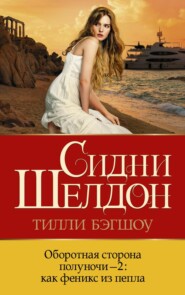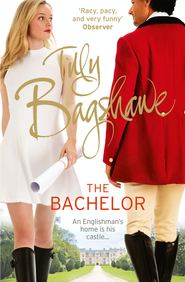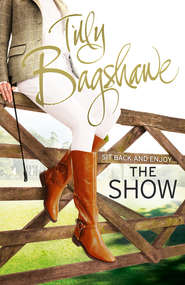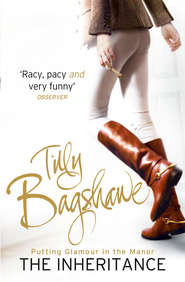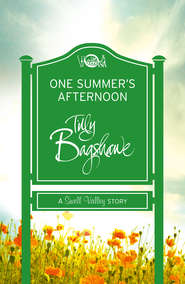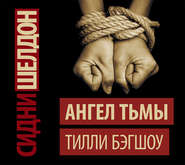По всем вопросам обращайтесь на: info@litportal.ru
(©) 2003-2024.
✖
One Christmas Morning: A perfect Christmas treat!
Автор
Год написания книги
2019
Настройки чтения
Размер шрифта
Высота строк
Поля
Laura went home and cried for a week. Then, unable to stand one more hour in the Battersea flat that had been her and John’s love-nest, she’d picked up the phone, found a six-month rental in Fittlescombe, the idyllic South Downs village where her granny used to live and where Laura had spent so many happy summers as a child, and left. Left London, left John, left her entire mess of a life.
I’ll write a masterpiece. I’ll recuperate. I’ll learn to cook and buy a dog and give up alcohol and go for long runs in the fresh air.
She managed the dog part, and now shared her home and so-called life with a fat, chronically lazy but endearing pug named Peggy. And she had done a bit of writing, in between fixing Briar Cottage’s leaky roof, dodgy electrics and jerry-rigged plumbing, as installed in 1932 and not ‘fiddled with’ since. But her latest play was certainly no masterpiece. Truth be told, after five months it was still little more than notes and a few character sketches. As for the healthy country lifestyle, Laura’s only runs so far had been to and from the larder, with Peggy waddling eagerly in her wake. If God had intended Laura Tiverton to bake, he would not have invented Mr Kipling. And, if he’d intended her to be sober, he wouldn’t have broken her heart.
‘Miss Tiverton. Miss Tiverton!’
Michael O’Brien’s howls brought Laura back to the present with an unpleasant bump.
‘I need the toilet.’
‘All right, Michael, off you go.’
‘I need to do a poo.’
‘All right, Michael. Thank you.’
‘Right now! It’s starting to come out …’
‘Oh, Jesus.’
Thankfully, Eileen Carter, Michael’s class teacher, rushed onto the stage and whisked the star soloist off to the loo before disaster struck.
Harry Hotham, St Hilda’s headmaster for the last fifteen years and the biggest flirt in Fittlescombe, saw his chance, sidling up to Laura and slipping a lecherous arm around her waist.
‘You know what they say, my dear. Never work with animals or children. I’m afraid with a village Nativity play, you’re rather saddled with both, ha ha!’
It was less of a laugh, more of a bray. Despite being drenched in Penhaligon’s aftershave, Harry Hotham still managed to smell of sweat and arousal, the familiar scent of the older Lothario at work. It reminded Laura of John so acutely, she gagged.
‘Yes, well, the children’s rehearsals are over now for the day,’ she said, wriggling free from the headmaster’s vicelike grip. ‘Mary, Joseph and the shepherds should be here at any moment for a read-through.’
‘Indeed, indeed. Well, I won’t keep you,’ said Harry Hotham, staring unashamedly at Laura’s breasts beneath her tight-fitting cashmere sweater. ‘I must buy you dinner some time though, my dear, to thank you properly for stepping in as our director.’
‘There’s really no need, Harry.’
‘No need? Nonsense. There’s every need. We’re expecting great things this year, you know, Laura. Great things.’
I was expecting great things, thought Laura, as St Hilda’s headmaster shuffled out with the remaining children and teachers. A baby. Marriage. But here I am in a draughty old church hall, trying to wrangle defecating six-year-olds while men old enough to be my father invite my tits to dinner.
‘Oh. You’re here.’
Laura spun around, her heart already sinking. Gabriel Baxter, a.k.a. Joseph, a.k.-also-a. the bane of Laura Tiverton’s existence since rehearsals began two weeks ago, looked at her as if she were something unpleasant he’d forgotten to wipe off his shoe.
‘Of course I’m here. I’m the director. Where else would I be?’
Gabe shrugged and grabbed himself a chair. ‘A man can hope.’
Laura remembered Gabe from summers spent in Fittlescombe as a little girl. He was an arrogant, irritating little shit back then, and he clearly hadn’t changed, improbably claiming not to remember Laura at all, despite their frequent childhood run-ins.
‘I can’t be expected to remember every tourist who ever came to the village,’ he remarked dismissively at the Parish Council meeting, when Harry Hotham introduced Laura as this year’s Nativity play director.
Like many Fittlescombe locals, Gabe Baxter resented the fact that his village had become a Mecca for second-homers and wealthy London media types. Two of the prettiest local manor houses had been bought by famous actresses, and a third belonged to a Russian industrialist whose supermodel wife had attracted unwanted paparazzi to Fittlescombe’s peaceful high street.
‘I wasn’t a tourist,’ Laura retorted crossly. ‘I came here every summer. Granny lived at Mill House for over twenty years.’
‘Oh! “Granny lived at Mill House”, did she? Over twenty ye-ahs?’ Gabe mocked Laura’s upper-class accent perfectly, and she remembered instantly why she’d always loathed him. ‘Well, one must excuse the likes of us poor servants for not remembering everything about Granny’s domestic arrangements.’
What grated most was that Gabriel Baxter was hardly a ‘poor servant’, for all his class-war rhetoric. A working farmer, Gabe owned a valuable property on the outskirts of the village and drove a Land Rover Defender. Whereas Laura rented a cottage on the brink of being condemned, was officially unemployed and drove a Fiat Punto so old and knackered that the passenger door had been welded shut.
‘Please don’t tell me it’s just us. I’ve had a long enough day as it is.’ Reaching up, Gabe rubbed his neck wearily. Even in November, he still sported a farmer’s tan, his face bronzed as much from windburn as from the sun. Blond and broad, with a stocky frame and the powerful shoulders of a shire horse, there was something mischievous about him that people generally, and women especially, found irresistible. That irked Laura too. The fact that Gabe was so popular in the village, so eminently capable of warmth and humour and kindness – just not towards her. Well, he could stick his reverse snobbery up his arse, along with the giant chip on his shoulder. She wasn’t about to let him rile her. Not today.
‘Thankfully, Lisa and the others will be here in a moment,’ she said, smiling through gritted teeth. ‘Perhaps, if my instructions are a bit too tricky for you to follow, they’ll be able to translate. I’ll ask one of the shepherds to draw you a picture.’
Gabe was about to say something when Lisa James, this year’s Mary, walked in. Wearing a cut-off Metallica T-shirt and skintight jeans that enveloped her perfectly round bottom like clingfilm round a pair of peaches, the barmaid from Fittlescombe’s famous Fox Inn looked anything but virginal. Turning away from Laura, Gabe flashed his co-star a hundred-megawatt smile.
‘Hello, darling.’ He winked. ‘Come and sit with your husband while Her Royal Highness over there gets organized. She’ll be putting us through our paces in a minute, won’t you, Miss Tiverton?’
Laura sighed. She felt deeply tired all of a sudden. She’d had enough of petulant children for one day.
* * *
By the time her mechanically challenged Fiat Punto spluttered to a halt outside Briar Cottage, darkness had long since fallen. It was November, and the nights were already bitterly cold. Behind Laura, the winding lanes of the village were slick with rain that by morning would have turned to sheet ice. In front of her, behind Briar Cottage, the South Downs rose like dark, shadowy giants. In the daytime the chalk hills looked benevolent, a bed of lush green pillows protecting the house from harm, cushioning Laura from the slings and arrows of modern life. She felt wonderfully safe here, enveloped not just by the peaceful rural setting of Fittlescombe, but by her own childhood, by happier times. This village, set deep in the Swell Valley, had always been her sanctuary, a magical, intoxicating place.
But now, in the darkness, and with Gabriel Baxter’s snide remarks still ringing in her ears, the Downs seemed to jump out at her, looming threateningly like an uncertain future. Holding the Nativity play script over her head as a makeshift umbrella, Laura dashed up the garden path and ran inside, slamming the front door closed behind her.
Peggy the pug heaved her fat form out of the basket by the Aga and waddled over to greet her mistress, wiggling her stump of a tail.
‘Hello, Peg.’ Pulling a McVitie’s chocolate digestive out of the jar on the counter, Laura ate half and gave half to the dog. ‘At least you’re pleased to see me.’
It was the kitchen at Briar Cottage that had sold Laura on the place. That and the overgrown garden that had looked riotously beautiful in spring, with dog roses everywhere and hollyhocks reaching almost to the chimneys, but now, in winter, untended by Laura, was a sodden mess of brambles and weeds. The kitchen maintained its charm, however, with its uneven flagstones worn smooth from centuries of use, its cheery red Aga and the cushioned window seat looking out over the rooftops of Fittlescombe with St Hilda’s Church steeple just visible in the distance. It was impossible not to feel cheered walking into Briar Cottage’s kitchen, even with the November rain peeing down outside, and your script hopelessly unfinished, and the village Nativity play you had stupidly, stupidly agreed to direct shaping up to be the biggest fiasco in Fittlescombe since the Black Death.
Propped up next to the biscuit jar was the stiff, embossed invitation that had arrived this morning. Picking it up, Laura read it again, as surprised now as she had been when she’d first opened it:
Rory Flint-Hamilton, Esq., requests the pleasure of the company of
Miss Laura Tiverton
At Furlings Christmas Hunt Ball
Friday 23 December, 8 p.m.
Black Tie
RSVP Furlings, Fittlescombe
Rory Flint-Hamilton was what an earlier generation would have described as the lord of the manor. Owners of the magnificent Furlings Estate, unquestionably the most beautiful house in the entire Swell Valley, Rory Flint-Hamilton’s ancestors had once owned the entire village of Fittlescombe. Nine generations of Flint-Hamiltons lay buried in St Hilda’s churchyard. Unlike those of most grand old country families, the Flint-Hamiltons’ fortunes and influence had risen, rather than fallen, in modern times, thanks to canny investments by Rory’s father Hugo in a number of African mines. Now an old man himself, and never a go-getter like his father, Rory Flint-Hamilton was content with the quiet life of a country squire. Every year, however, he bridged the divide between Fittlescombe’s old guard and its newer, more glamorous part-time residents by hosting the Furlings Hunt Ball, an event so grand that prime ministers and even the occasional Hollywood film star had been known to attend.
How on earth Laura had scored an invitation she had no idea. Her grandmother had known the Flint-Hamiltons, of course, but the two families had never been close. Laura herself had only ever seen Rory Flint-Hamilton at church, and was pretty certain she had never spoken to him. Perhaps Harry Hotham had said something. Or the vicar, dear old Reverend Slaughter. This morning, excited to receive the card, Laura had impetuously posted the news of her invitation on Facebook. But, as the day wore on, the horrible thought occurred to her that perhaps local people felt sorry for her. She could picture St Hilda’s headmaster now, cornering Rory Flint-Hamilton in the village stores:






